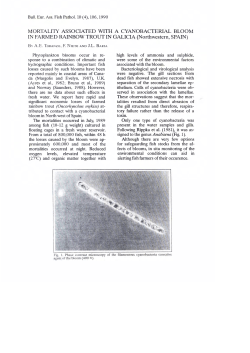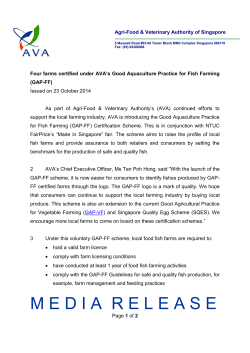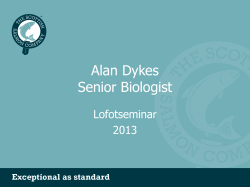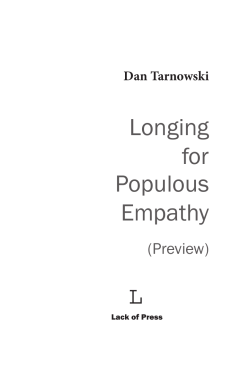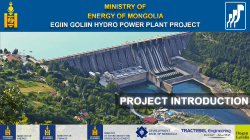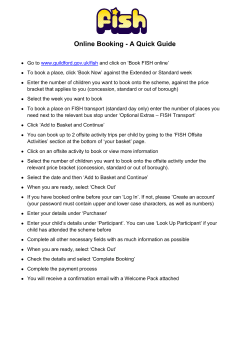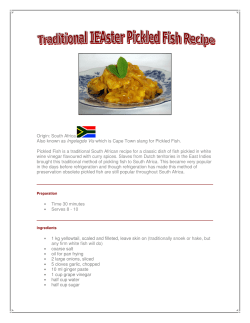
Course Specification University: Suez Canal University Faculty
Course Specification University: Suez Canal University Faculty/Institute: Fish Farming and Technology Institute Department/Program: Aquaculture Diseases Control 1-Course data Code: MDC101 Course Title: Principles of nursing and Academic year/Level: 4102-4102 feeding in Aquaculture Credit/ Taught Hours: Theoretical 4 + Practical 4 Program: Master diseases control of aquaculture * Gain the experience of scientific research * Provide graduates the opportunity to develop research skills 2- Course aim(s) * Provide graduate with skills in interpretation of the published literature to prepare them to assimilate and incorporate new developments into research and clinical activities * Provide field and academic information about aquaculture breeding and management. *provide field and academic information about feeding in aquaculture. 3- Intended Learning Outcomes (ILOs): - On successful completion of this program graduate will be able to: 0 -Describe advanced research techniques used in the field of aquaculture breeding, management and feeding. 3.A- Knowledge and understandings: 4- Interpret the information on aquaculture breeding, management and feeding. 3- Apply their knowledge and understanding of aquaculture breeding, management and feeding to the critical analysis and discussion of the scientific literature. 3.BSkills: Intellectual l- Critically evaluate their own research data and develop new approach to solving their research questions 4-Develop creative approaches to solving technical problems or issues associate with running and researches project. 3- Identify , summarize and evaluate prior researches finding in a specific area 2- Identify areas where further researches necessary and be aware of any which would be beyond current ethical codes. 3.CSkills: 0 –Selection of suitable fish, site and water for fish culture. Professional 4- Analyze of water quality information. l- Demonstrate information retrieval and library skills 4- Demonstrate interpersonal skills and team working ability by the successful completion of collaborative learn assignment and the honors researches projects 3.D- General Skills: 3- Finding present research in oral and written from using arrange of appropriate soft ware (e.g., power point , word , excel and data base). Theoretical part content 1- Course content: (theoretical and then practical) Topic No. of Week(s) Hours No. No. of Lecture(s) Introduction to Fish management 4 0 1 4 4 0 Characters of fish suitable for fish farming 4 3 0 Fish species suitable for farming in tropics 4 2 0 Characters of site & water suitable for fish 4 farming 2 1 4 6 1 Midterm exam 4 7 1 Monosex culture 2 8 1 Transportation of live fishes 2 9 1 Fish Farming- Aims of Establishment of a fish farm -Fertilization of fish farms fish farming- -Culture systems of fish 2 01 1 Problems associated with bad water quality 2 (0) Nitrite toxicity-Gas bubble disease 00 1 Problems associated with bad water quality 2 (4) Algal blooms- Biological oxygen demand. 04 1 Problems associated with bad water quality 2 (3) Ammonia toxicity- Acid rains- Alkalosis 03 1 2 02 1 Types of ponds Feeding of cultured fish Practical part content Topic No. of week(s) Hours No. Practical Tutorial Aquaculture terminology 2 1 --- 2 Classification of fishes 2 2 ---- 2 2 3 ---- 2 Practical application on external 2 and internal structure of fish 1 4 ---- 2 5 --- 2 Practical application for fish 2 anesthesia & Blood collection 6 2 --- 2 7 ---- --- -Cultured freshwater & Marine 2 water fishes 8 1 1 Water characters(1) reaction- Turbidity) 9 ---- 2 Water characters(2) 2 (Temperature-Dissolved oxygen) 10 ---- 2 Practical determination of water 2 11 2 ----- -External structure of fish - Internal structure of fish -Fish anesthesia -Blood collection Midterm exam (chemical 2 characters -Aquaponics Types of feeding Aquaculture stuffs Practical exam in 2 12 1 1 2 13 1 1 2 11 ----- ----- 2.0 Lectures 2.4. Small groups teaching 5Teaching and 2.3. Essays and seminars learning methods: 2.2. Case Studies and Problems 2.2. Contact hours. 2.2. Practical sessions 6- Teaching and Additional classes will be allowed learning methods for limited capability students: 7- Students assessment: Quizzes which will incorporate both lecture and reading materials. Class activities: discussions, brain storming, small groups, problem solving. 7.AAssessment Reports and term papers Methods: Oral exam Practical exams Written exams Assessment 0 Mid-term exam Week 7 7.BAssessment Assessment 4 Practical exam Week 02 schedule Assessment 3 Oral exam Week 02 Assessment 2 Final exam Week 02 Class Activities 412 Mid-Term Examination 012 7.CAssessments Oral Examination 012 Weights Practical Examination 412 Final-term Examination 212 Total 100 % 8- List of Books and references 8.A- Notes: 8.B- Essential books: 8.C- Recommended books: Aquaculture biology and ecology of cultured species. Gilbert Branabe, 4991. Management for freshwater fish culture pond and water practices. FAO training series, 0997. Aquaculture (principles and practices). T.V.R. Pillary, 4112. Tilapia culture. Abdel-Fatah M. El-Sayed, 4116. Fish aquaculture technology and experiments. Christoph meske, 0982. Introduction to aquaculture. Matthew landau, 0994. Text book of fish culture breeding and cultivation of fish. Marcel Huet, 0992. Aquaculture farming aquatic animals and plants. Jhon S. lucas and Paul C. southgate, 4113 8.DScientific periodicals, websites ….etc -Journal Of fish diseases - Aquaculture -www.fao.com Course coordinator: Dr. Maather Mohamed Monier Taha El-Lamie Head of Department:
© Copyright 2025
